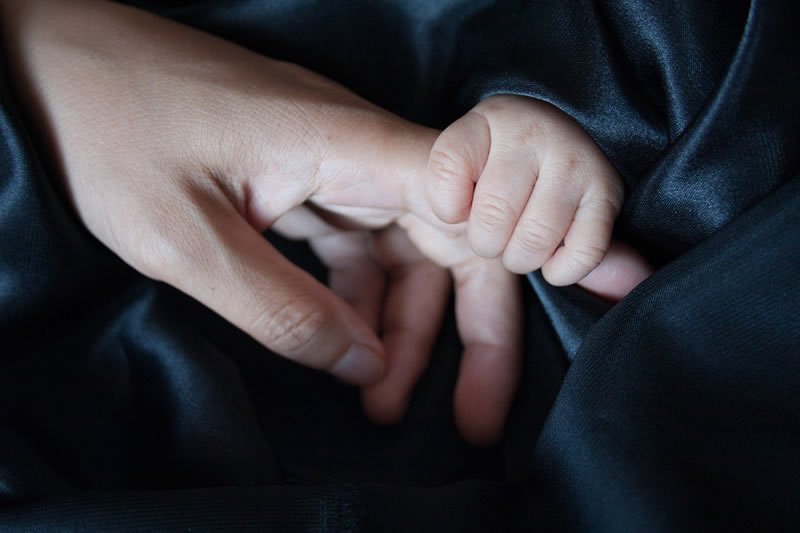Summary: Mothers on the autism spectrum are more likely to report symptoms of postnatal depression than mothers who do not have ASD.
Source: University of Cambridge
Autistic mothers are more likely to report post-natal depression compared to non-autistic mothers, according to a new study of mothers of autistic children carried out by researchers at the University of Cambridge. A better understanding of the experiences of autistic mothers during pregnancy and the post-natal period is critical to improving wellbeing. The results are published in Molecular Autism.
The team recruited an advisory panel of autistic mothers with whom they co-developed an anonymous, online survey. After matching, this was completed by 355 autistic and 132 non-autistic mothers, each of whom had at least one autistic child.
Sixty percent of autistic mothers in the study reported they had experienced post-natal depression. By comparison, only 12% of women in the general population experience post-natal depression. In addition, autistic mothers had more difficulties in multi-tasking, coping with domestic responsibilities, and creating social opportunities for their child.
The study also found that when autistic mothers disclosed their autism diagnosis to a professional, they were not believed the majority of the time. Autistic women felt misunderstood by professionals more frequently during pre- and post-natal appointments and found motherhood an isolating experience. Despite these challenges, autistic mothers reported they were able to act in the best interest of their child, putting their child’s needs first and seeking opportunities to boost their child’s self-confidence.
Dr Alexa Pohl, who led the study, said: “Autistic mothers face unique challenges during the perinatal period and parenthood. Despite these challenges, an overwhelming majority of autistic mothers reported that parenting overall was a rewarding experience. This research highlights the need for increased awareness of the experiences of motherhood for autistic women and the need for more tailored support.”

Professor Simon Baron-Cohen, Director of the Autism Research Centre at Cambridge, and part of the team, said: “This worryingly high number of autistic mothers who experience post-natal depression means we are failing them and their infants at a critical point in their lives. We now need more research into why the rates are so much higher, whether they are seeking help and not getting it, or if they are not seeking help and for what reasons. A new research priority is to develop autism-relevant screening tools and interventions for post-natal depression in these mothers.”
Monique Blakemore, an autistic advocate and member of the team, said: “This vital study was initiated by the autistic community, who collaborated as equal partners with researchers in the design, dissemination and interpretation of the survey. This is an excellent example of what can be achieved through such partnership.”
Funding: The study was supported by the National Institute of Health Research (NIHR) Collaboration for Leadership in Applied Health Research and Care (CLAHRC), East of England, at Cambridgeshire and Peterborough NHS Foundation Trust, the Autism Research Trust, the MRC, the NIHR Cambridge Biomedical Research Centre, and Autistica.
Source:
University of Cambridge
Media Contacts:
Craig Brierley – University of Cambridge
Image Source:
The image is in the public domain.
Original Research: Open access
“A comparative study of autistic and nonautistic women’s experience of motherhood”. Alexa Pohl, Sarah Crockford, Monique Blakemore, Carrie Allison and Simon Baron-Cohen.
Molecular AutismS doi:10.1186/s13229-019-0304-2.
Abstract
A comparative study of autistic and nonautistic women’s experience of motherhood
Background
Autism is a lifelong neurodevelopmental difference and disability, yet there is limited research examining parenting in autistic mothers.
Objective
To explore autistic mothers’ experience of the perinatal period and parenthood. This includes pregnancy, childbirth, the postpartum period, self-perception of parenting strengths and weaknesses, communication with professionals in relation to one’s child, mental health difficulties and the social experience of motherhood. It also includes disclosing one’s diagnosis of autism in parenting contexts.
Methods
We used a community-based participatory research model, and recruited an advisory panel, with whom we co-developed an anonymous, online survey for autistic mothers. The online survey was completed by autistic and non-autistic mothers, and we compared their responses using Chi-squared analysis.
Sample
Autistic mothers (n = 355), and non-autistic mothers (n = 132), each of whom had at least one autistic child, were included in our final analysis.
Results
There were differences in education, gender identity and age of mother at birth of first child. Autistic mothers were more likely to have experienced additional psychiatric conditions, including pre- or post-partum depression, and reported greater difficulties in areas such as multi-tasking, coping with domestic responsibilities and creating social opportunities for their child. They were also more likely to report feeling misunderstood by professionals, and reported greater anxiety, higher rates of selective mutism, and not knowing which details were appropriate to share with professionals. They were also more likely to find motherhood an isolating experience, to worry about others judging their parenting, or feel unable to turn to others for support in parenting. However, despite these challenges, autistic mothers were able to act in the best interest of their child, putting their child’s needs first.
Conclusions
Autistic mothers face unique challenges and the stigma associated with autism may further exacerbate communication difficulties. Greater understanding and acceptance amongst individuals who interact with autistic mothers is needed, and autistic mothers would benefit from additional and better-tailored support.






